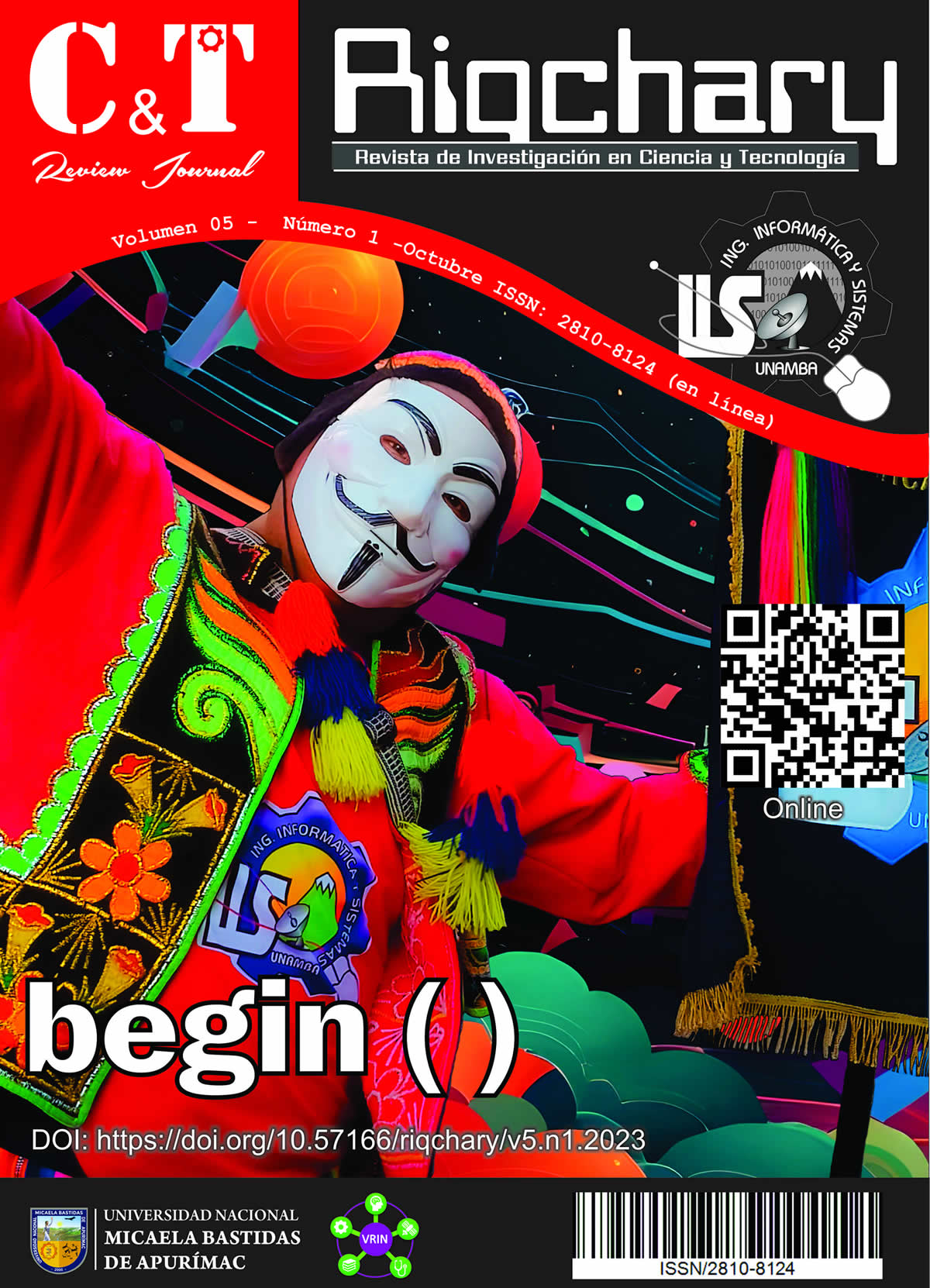Virtual tutoring in the academic and human formation of UNAMBA students
Main Article Content
Abstract
Time has been a primordial witness in the evolution of human knowledge; day by day, as a result of human ingenuity, an impressive amount of technological novelties appear, breaking all kinds of barriers and increasing the interest in designing new virtual tools that lead to multidisciplinary learning [1]. This research determines the contribution of virtual tutoring in the academic and human formation of students of the Universidad Nacional Micaela Bastidas de Apurímac; virtual tutoring is a process of accompaniment during the training of tutored students, through personalized attention to students by tutor teachers, conceptually supported by learning theories that enable a better approach to students, whose work of the tutor teacher is to help students learn to successfully complete their professional career, it is also very important to mention the existence of a mutual relationship between tutor and tutored, in this interrelationship virtual communication should be fluid and harmonious between the two actors. The results obtained in the specific hypothesis tests show that virtual tutoring contributes significantly to the academic formation of UNAMBA students; thus, the surveys show that virtual tutoring contributes to the human formation of UNAM-BA students.
Article Details

This work is licensed under a Creative Commons Attribution-NonCommercial-NoDerivatives 4.0 International License.
When an author creates an article and publishes it in a journal, the copyright passes to the journal as part of the publishing agreement. Therefore, the journal becomes the owner of the rights to reproduce, distribute and sell the article. The author retains some rights, such as the right to be recognized as the creator of the article and the right to use the article for his or her own scholarly or research purposes, unless otherwise agreed in the publication agreement.
How to Cite
References
A. Toledo Chambilla, “LA TUTORÍA A TRAVÉS DE LAS AULAS VIRTUALES: UNA EXPERIENCIA DE FORMACIÓN Y AUTOFORMACIÓN.”, Bolivia, sep. 2019. Consultado: el 5 de septiembre de 2023. [En línea]. Disponible en: https://dialnet.unirioja.es/servlet/articulo?codigo=9001484
L. Balseca Córdova, V. Orellana Navarrete, I. C. Rodríguez Ordóñez, y D. A. Salas Bustos, “Formación de tutoras y tutores virtuales. Una experiencia educativa desde el punto de vista de los capacitadores”, Revista Andina de Educación, vol. 4, núm. 2, pp. 1–10, may 2021, https://doi.org/10.32719/26312816.2021.4.2.1
J. Luis Cueva Delgado Liliana de la Caridad Molerio Rosa Misleydi Ramírez Serrano, J. Luis Cueva Delgado, L. de la Caridad Molerio Rosa, y M. Ramírez Serrano, “Las tutorías virtuales en el proceso universitario Las tutorías virtuales en el proceso universitario Virtual tutorials in the university process”, 2019. [En línea]. Disponible en: https://orcid.org/0000-0001-8760-6854
D. A. Contreras Navarro y Bejarano Álvarez Patricia Mónica, “La tutoría virtual en las clases remota de la estrategia aprendo en casa”, Ciencia Latina Revista Científica Multidisciplinar, vol. 6, núm. 2, pp. 1748–1757, abr. 2022, https://doi.org/10.37811/cl_rcm.v6i2.1993
R. Hernández Sampieri, C. Fernández Collado, y P. Baptista Lucio, Metodología de la Investigación, 6ta ed. México, 2014.
E. E. Espinoza Freire y M. L. Ricaldi Echevarria, “El tutor en los ambientes virtuales de aprendizaje”, Universidad y Sociedad, pp. 201–210, 2018.
E. Huayta-Campos y G. Bravo-Huaynates, “Educación remota y competencias del tutor virtual en la pandemia COVID-19 - Lima”, 593 Digital Publisher CEIT, vol. 7, núm. 4, pp. 167–187, jul. 2022, https://doi.org/10.33386/593dp.2022.4.1095
J. Mesa Vázquez, M. Parra Álvarez, y G. E. C. Marcillo, “VIRTUAL TUTORING ENVIRONMENT: AN ALTERNATIVE TO STREAMLI-NE SCIENTIFIC RESEARCH PROCESSES”, 2021.
C. M. Valderrama Nuñez, K. Roa Hernández, C. Landeros Díaz, J. Reyes Macias, y M. Quilabrán Meneses, “Tutorías virtuales postpandemia: implicancias en los aprendizajes de estudiantes de terapia ocupacional que cursan sus prácticas profesionales”, Revisión Dic, vol. 12, 2023, https://doi.org/10.1590/2526-8910.ctoao265234603
A. Rodríguez Figueroa, M. A. Pérez Egües, y L. del C. Torres Zerquera, “La tutoría virtual en la carrera Licenciatura en Educación. Pedagogía Psicología, experiencias en la Universidad de Cienfuegos”, pp. 1–19, dic. 2022, Consultado: el 3 de septiembre de 2023. [En línea]. Disponible en: https://revistamapa.org/index.php/es/article/view/342/507





